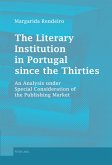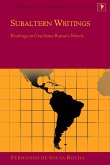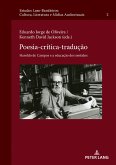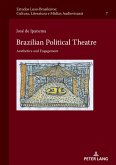In the first three decades of the twentieth century, artists, writers, musicians, and architects from both sides of the Atlantic interacted to create a modern style for Brazil. Their works shaped Brazilian national expression and self-definition for the twentieth century and into the present, with renewed relevance as Brazil plays an increasingly important role in global affairs. Artists such as Tarsila do Amaral and Roberto Burle-Marx are appearing for the first time in museums in the United States and Europe, along with the concept of antropofagia from the «Cannibal Manifesto», a theory of cultural autonomy and a model for fusion, hybridity, and assimilation. This book offers a cultural history and interpretation of Brazilian modernism in the arts and letters, exploring how modernism depends on transatlantic negotiation and develops through interchanges between Brazilians and Europeans.
«Kenneth David Jackson is one of the most prominent scholars devoted to Brazilian studies. A leading world researcher, David Jackson offers a groundbreaking contribution to the understanding of the Brazilian Avant-Garde, whose 100 years will be celebrated in 2022. A timely publication, this book will become a classic reference on the topic.» (Professor João Cezar de Castro Rocha, State University of Rio de Janeiro)
«Cannibal Angels offers a timely and illuminating reconsideration of the Brazilian avant-garde and a rigorous examination of Brazil's entangled historical and cultural connections with Europe. Developing around such fertile themes as voyage, portraiture, improvisation, and utopian primitivism, and anchored in a wide-ranging and deeply knowledgeable transatlantic perspective, this probing exploration of Brazilian modernism is certain to remain an essential reference text for years to come.» (Professor Luís Madureira, University of Wisconsin-Madison)
«Cannibal Angels offers a timely and illuminating reconsideration of the Brazilian avant-garde and a rigorous examination of Brazil's entangled historical and cultural connections with Europe. Developing around such fertile themes as voyage, portraiture, improvisation, and utopian primitivism, and anchored in a wide-ranging and deeply knowledgeable transatlantic perspective, this probing exploration of Brazilian modernism is certain to remain an essential reference text for years to come.» (Professor Luís Madureira, University of Wisconsin-Madison)








